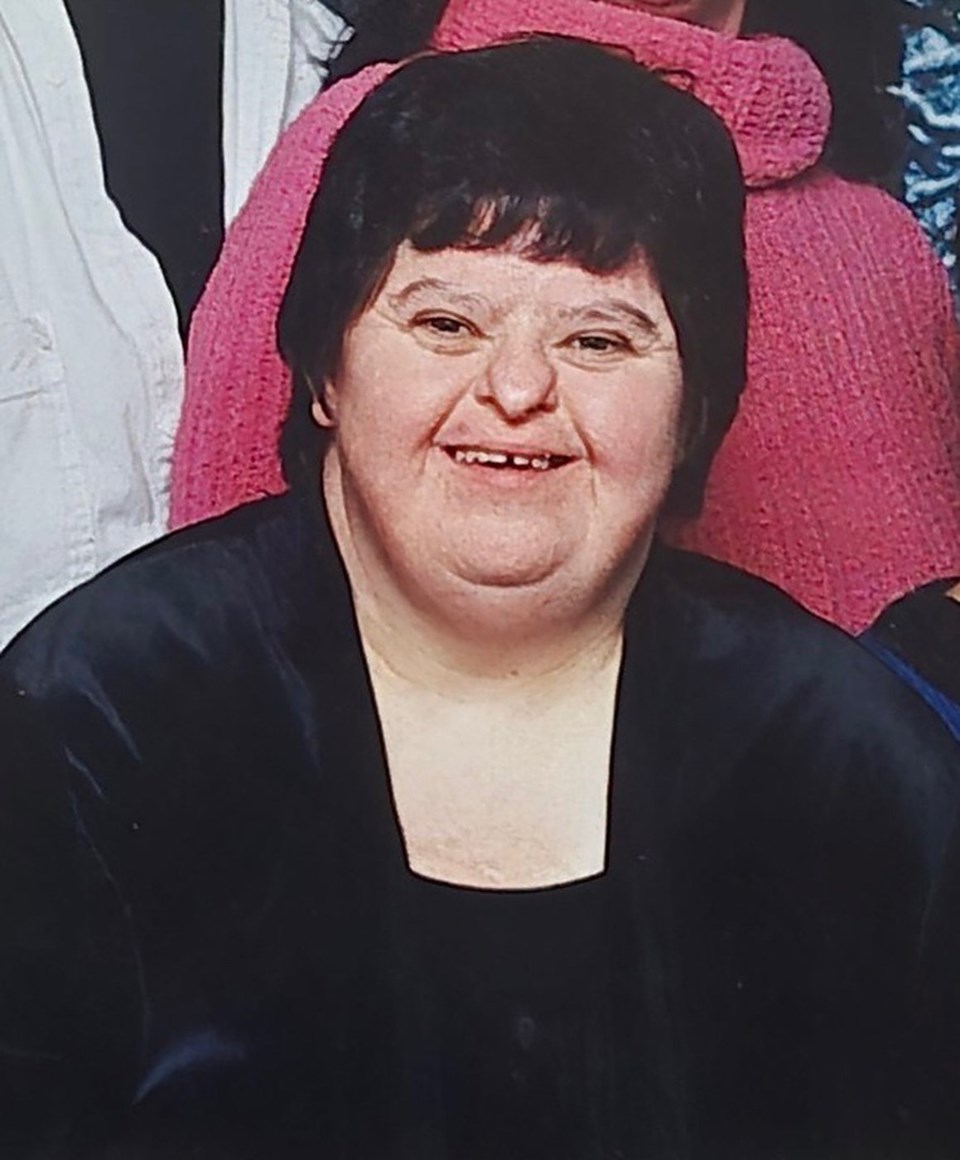BURNABY, saąúĽĘ´«Ă˝ — The caretaker convicted for her part in the starvation death of Florence Girard says she wouldn't have gone into home care had she known how little support would be given to her.
Astrid Dahl also criticized the homecare organization she worked for when Girard, who had Down syndrome, starved to death in her care in 2018, telling a coroner's inquest that Kinsight Community Society put "paperwork before people" and provided little support for things such as prescribed pain medication or health expertise.
Girard weighed about 50 pounds when she died, and Dahl was convicted in 2022 for failing to provide the necessaries of life for the woman.
Dahl testified that she had to reduce the frequency of pain medication and switch to a cheaper, less potent painkiller, partially because Kinsight didn't pay for the prescribed medicine.
A lawyer representing Kinsight, which oversaw the home-sharing service under a contract with provincial Crown corporation Community Living BC, asked Dahl why she had filed in a written report saying the "medication will continue to be given as prescribed" despite the switch to a less potent painkiller at a lower frequency.
Dahl said she didn't take the written reports for Kinsight very seriously since "no one's reading them," while also saying throughout her testimony that she did not remember a number of files brought up by the lawyer about Girard's condition and care plan.
When asked by a lawyer for Girard's family what she would do differently, given the outcome, Dahl said she would "not do home share."
"Advise anyone not to do home share," she said.
Dahl said the stronger drugs she had been giving to Girard weren't as effective and contributed to her decision to switch the medication, despite Girard experiencing constant pain as she got older.
"With Flo, I was so zoomed in on Flo that I didn't zoom out and take a look at the big picture," she testified. "So, that's on me. But because I wasn't getting any sort of support from who I was expecting support from … I just took all the decisions on myself."
Dahl also told the inquest that Kinsight gave no nutritionist support when Girard began losing weight, so she instead consulted her mother, a former nurse.
Girard was living with Dahl as part of a program for people with developmental disabilities.
A coroner's inquest does not assign fault or blame and the jury is given the goal of fact-finding. The inquest has been scheduled through to Jan. 22.
This report by The Canadian Press was first published Jan. 15, 2024.
Chuck Chiang, The Canadian Press



